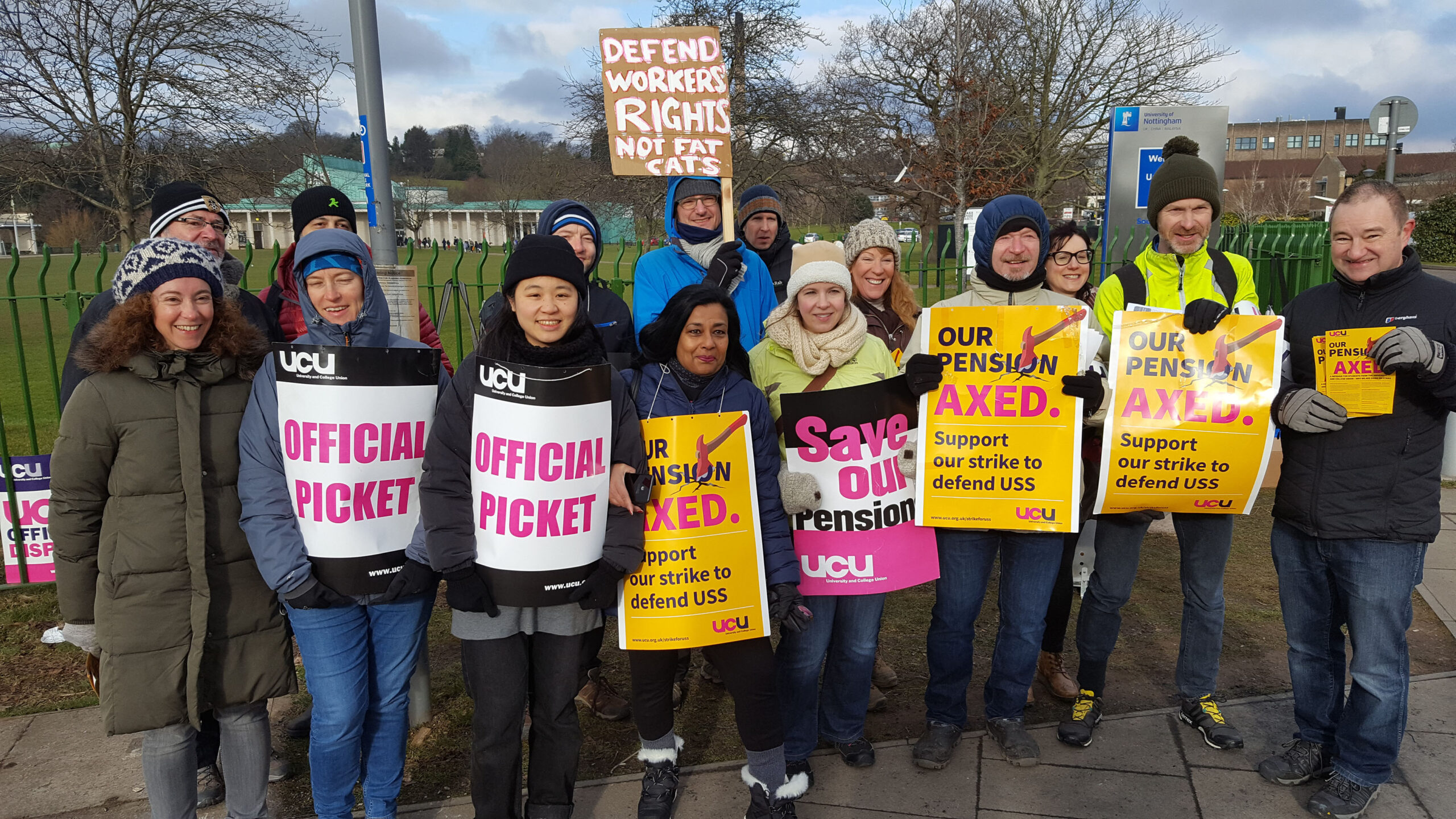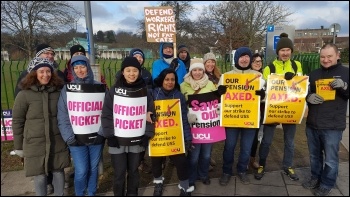UCU conference: Members are organising and winning – build the union, build the struggles!
Sam Morecroft, UCU conference delegate (personal capacity)
It’s been an explosive year for the University and College Union (UCU), with members forced to take unprecedented strike action to defend our jobs, terms and conditions. But by any measure possible, UCU members have risen to the challenge brilliantly.
UCU became the first union to take nationally coordinated strike action in the shadow of the hated Trade Union Act, overcoming its barriers and proving decisively that workers will not be prevented from struggling by government legislation.
The magnificent 14-day university pensions strike showed what is possible when we come together to take serious and sustained industrial action. Not only did our members give Universities UK the shock of their lives – but when our leadership looked set to ballot members on an offer that wasn’t good enough, branches organised brilliantly to coordinate meetings and a protest outside UCU headquarters to send a clear message of no capitulation.
Furthermore, as a result of the fantastic struggle of our members, the employers have withdrawn their threat of completely scrapping ‘defined benefit’ pensions (which guarantee a certain amount after retirement according to how much the member of staff earns and how long they stay in the scheme) – for now at least.
While the strike was a huge victory, there is much anger at the way the dispute ended. The so-called consultation and ballot, held during the Easter holidays, were rightly described in the Socialist as a “stitch-up”. As a result, complaints and motions of no confidence in the general secretary have been put to this congress.
But we also need to look to the future and recognise the need to build a fighting, democratic and socialist UCU, led and controlled by the membership. This is of incredible importance when we consider the strikes now breaking out in further education over pay. The sector is in complete crisis, with national bargaining almost completely broken down and 40% of colleges refusing to implement any pay rises that are agreed anyway.
Pay has fallen by as much as 25% for our members in the last five years. That’s why 13 UCU branches have taken action over pay this year, showing magnificent resolve in the face of enormous challenges. Sandwell College UCU has secured a victory already, agreeing a 6.25% pay increase over the next three years. That shows what’s possible, but we need to support our branches to build the action, and that requires a democratic and member-led union willing to fight.
There have been important local strikes developing throughout the year. Crucially there have been victories as well, for example at Manchester, Coventry and Leeds universities.
These struggles are a reflection of the attacks we’re facing across education as a result of privatisation, marketisation and austerity.
It’s almost certain that in the pre-92 higher education institutions we will have to strike to defend our pensions again in the future, and all branches definitely have to begin the campaign for a successful ballot and industrial action over pay – we cannot accept the below-inflation offer of 1.7%. When we consider the scale of the challenge our members face over pay in further education we should be fighting for coordinated action in both higher and further education.
But we need a discussion about how we run our union. We lack a fully democratic, accountable collective leadership that is responsive to the demands of the members. Sheffield, Bath and Bournemouth UCU have all submitted similar motions to congress calling for a ‘democracy review’.
Unfortunately these have been ruled out of order on the grounds that it is not the role of congress to determine the terms and conditions of employees of the union.
But this is not what these motions are about – they are asking for discussion on our democratic structures, like the executive committee and the general secretary. Delegates must challenge the decision, and support the call for a democracy review. Currently the executive council allows the office of general secretary far too much power – we need to build a democratic and collective leadership of the union.
It’s been an incredible year, but the struggles still to come will be even greater.








